May 30, 2025 | 08:45 GMT +7
May 30, 2025 | 08:45 GMT +7
Hotline: 0913.378.918
May 30, 2025 | 08:45 GMT +7
Hotline: 0913.378.918
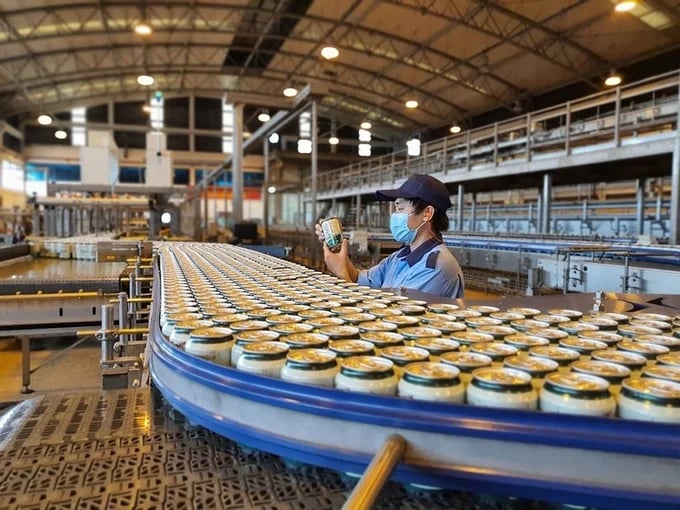
Many businesses in the beer industry agree on a roadmap to increase special consumption tax when socio-economic conditions allow.
According to Tuoi Tre Capital Newspaper, the Ministry of Finance has just submitted a proposal to develop a Law on Special Consumption Tax (amended), which includes a proposal to increase taxes with two options.
Option 1: Maintain the current tax calculation method and increase special consumption tax according to a roadmap consistent with recommendations of the World Health Organization (WHO).
Option 2: Adjust tax increase by applying a mixed tax calculation method (applying relative tax according to percentage, adding an absolute tax on alcohol and beer products).
Of the two options above, the Ministry of Finance proposes to choose option 1 to ensure competitiveness in the context of differences in the quality and price of alcoholic beverages and also to ensure budget revenue.
Recently, in a document sent to the Prime Minister and relevant ministries and branches, the Vietnam Association of Financial Investors (VAFI) also agreed with option 1. This means keeping the current tax calculation method unchanged and increasing special consumption tax according to a roadmap consistent with WHO recommendations.
According to Mr Nguyen Hoang Hai - Vice Chairman of VAFI, many businesses in the industry agree on the roadmap to increase special consumption tax when socio-economic conditions allow in each stage but must ensure the principle of fairness for all businesses.
In option 2, Mr Hai said that with the calculation of special consumption tax using a mixed method, businesses do not question the percentage tax calculation because it ensures fairness for all businesses.
However, they cannot accept an absolute tax rate that is charged the same on a unit of consumed product whether the beer has a high or low value. Consequently, small and medium-sized enterprises will quickly go bankrupt because they have to pay absolute tax rates that are too high compared to the selling price.
Also according to Mr. Hai, because the absolute tax rate is applied equally on each unit of consumed product, even though product prices differ between brands, companies producing high-end and near-premium beer and leading enterprises dominating the market can benefit from this mechanism.
Meanwhile, small and medium-sized beer production companies, most of which are Vietnamese enterprises, have less competitive advantage. There will be great difficulties if the special consumption tax calculation policy changes to a mixed method.
Also commenting on this issue, National Assembly delegate Pham Van Hoa - A member of the National Assembly's Law Committee agreed with the plan to maintain the current tax calculation method and increase the special consumption tax according to a roadmap consistent with WHO recommendations.
According to Mr. Hoa, in the difficult context of the economy in general and businesses in particular it is necessary to limit adjustments to policies that have a strong impact on production and business activities of enterprises. Therefore, he believes that at this time, the State needs to maintain the current tax calculation method and increase it according to the roadmap.
"Maintaining the current tax calculation method and increasing the special consumption tax according to the roadmap is appropriate for businesses and the current economic context", Mr Hoa said.
Meanwhile, analyzing option 2, National Assembly delegate Pham Van Hoa said that adding an absolute tax on alcohol and beer is unfair to all businesses in the industry.
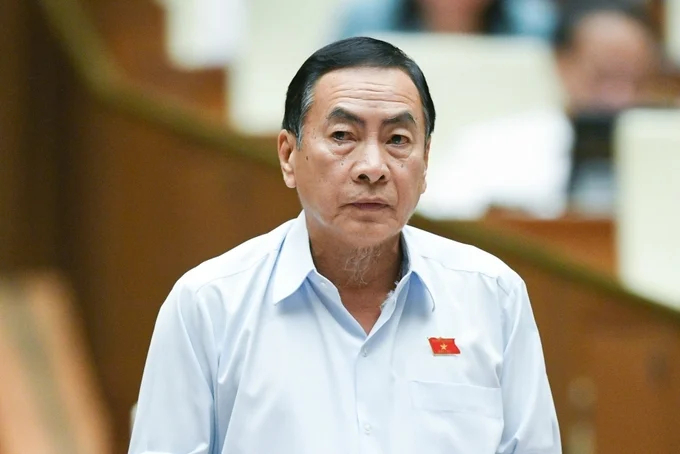
National Assembly Delegate Pham Van Hoa - Dong Thap Provincial National Assembly Delegation, Member of the National Assembly's Law Committee.
According to the Member of the National Assembly's Law Committee, every enterprise has different production and business capabilities, different markets and different product selling prices so the same tax cannot be applied. This will lead to inequality and unfairness.
"Imposing an absolute tax on alcohol and beer products is inappropriate because each company has different capabilities, markets and product selling prices. For example, if Heineken beer sells for VND 460,000 per barrel, they must pay tax at that price. As for Saigon beer or Hanoi beer priced at VND 300,000 per barrel, why do they have to pay a tax rate with a selling price of VND 460,000?", Mr. Hoa analyzed.
Therefore, National Assembly delegate Pham Van Hoa proposed a reasonable way to calculate special consumption tax, ensuring competition and fairness for businesses, especially beer companies in the low and popular segments will be severely affected.
Also expressing his opinion on this, Mr. Dong Van Cuong - Director of Phu Thai Son Co., Ltd. (headquarters in Hanoi), Bao Trang, Hada Gold beer brewing enterprise, agreed with the plan to maintain the current tax calculation method and increase special consumption tax according to the appropriate roadmap.
According to Mr. Cuong, the current beer consumption situation is very difficult, the company's products are in the low segment so the market is mainly in rural and mountainous areas, so revenue is low and profits are not high. Therefore, he believes that it is necessary to review the roadmap for increasing special consumption tax to support businesses in this context.
On the other hand, Mr. Cuong also opposes adding an absolute tax rate on beer products, because naturally, the company's products will be subject to higher special consumption taxes while the selling price and consumption are too low.
Translated by Hoang Duy
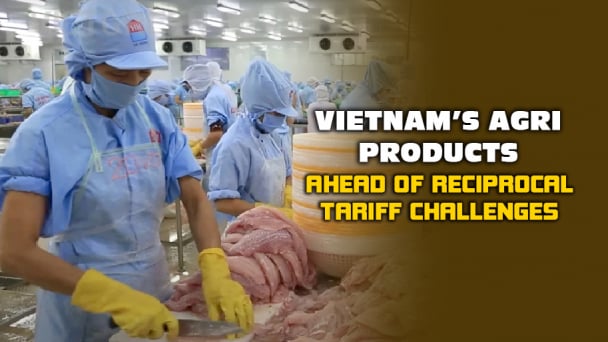
(VAN) Reciprocal tariffs are exerting pressure on U.S. exports, prompting Vietnamese firms to shift their focus to Muslim markets, Thailand, and Brazil.
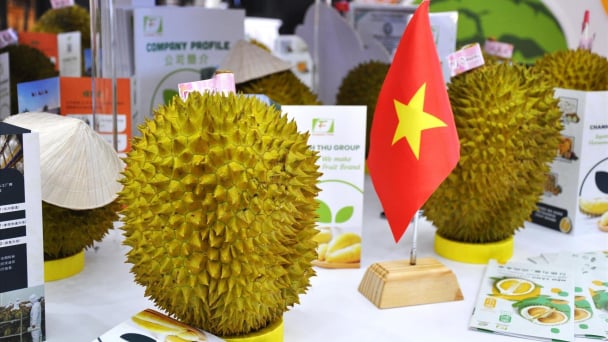
(VAN) A free booth for two years at Xinfadi, Beijing's largest wholesale market, will be allocated to Vietnam's agricultural products.
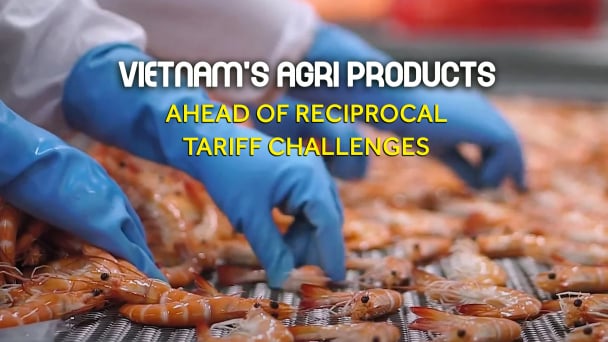
(VAN) Vietnamese shrimp exporters are actively looking for alternative markets and accelerating shipments to the United States in response to the pressure of impending reciprocal tariffs. This is occurring during a temporary tariff suspension.

(VAN) The import-export turnover between Vietnam and Singapore rose amid a trade rebound, with machinery, electrical equipment, and fuels making up the majority of the transaction value.

(VAN) Director General of the General Administration of Customs of China, Ms. Sun Mai Jun, has pledged to implement measures that will ease the import process for Vietnamese agricultural products.

(VAN) Although Vietnam is still increasing its coffee exports, the industry is currently in the process of determining market strategies in response to the U.S. imposition of reciprocal tariffs.

(VAN) With rising demand in Muslim-majority countries, Halal certification is becoming a critical passport for Vietnamese agricultural products seeking sustainable market access and consumer trust in the Middle East and Africa.